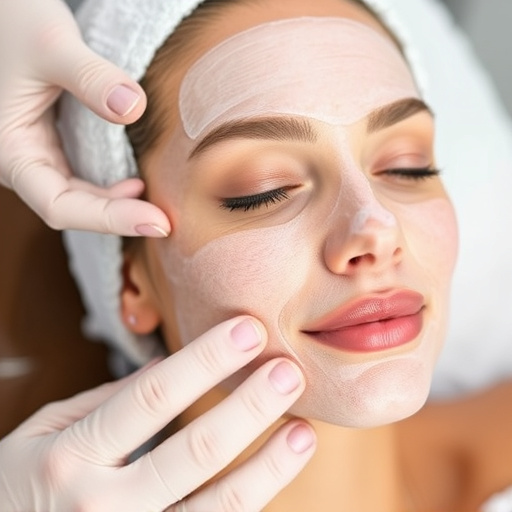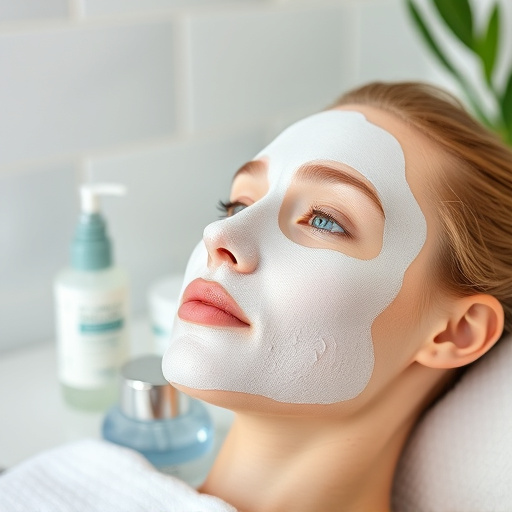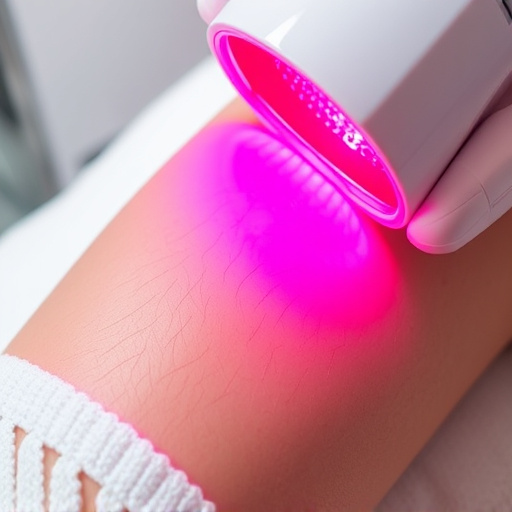Melasma management on sensitive skin requires a customized approach due to its unique needs. While topical treatments like hydroquinone creams and retinoids help, non-surgical procedures and gentle facials are ideal. Incorporating dietary antioxidants, stress reduction, exercise, broad-spectrum sunscreen, and avoiding harsh chemicals further aids in melasma treatment. Chemical peels performed by dermatologists can also exfoliate and improve skin tone. These multi-faceted strategies are key to effectively managing melasma on sensitive skin.
Melasma, often called the ‘mask of pregnancy,’ is a common skin condition characterized by dark patches, particularly on the face. For individuals with sensitive skin, finding effective yet gentle melasma treatment can be challenging. This article explores the best approaches to managing melasma without aggravating delicate skin. We delve into topical treatments, non-topical therapies, and lifestyle adjustments that can help lighten and even out skin tone while prioritizing sensitivity.
- Understanding Melasma and Sensitive Skin
- Topical Treatments for Melasma on Sensitive Skin
- Non-Topical Approaches and Lifestyle Changes
Understanding Melasma and Sensitive Skin

Melasma, characterized by patches of discolored skin often appearing on the face, is a common skin concern, especially for those with sensitive complexions. This condition, triggered by hormonal fluctuations and sun exposure, can be particularly challenging to manage due to the delicate nature of sensitive skin. Understanding both melasma and the nuances of sensitive skin types is paramount when seeking effective treatment options.
Sensitive skin, by definition, is more reactive and susceptible to irritation. When it comes to melasma treatment, this means that traditional approaches may not always be suitable. Customized facials, non-surgical treatments, and aesthetic treatments that cater to the specific needs of sensitive skin are often the best course of action. These tailored methods prioritize gentle care while aiming to lighten and even out skin tone, addressing melasma without causing further discomfort or irritation.
Topical Treatments for Melasma on Sensitive Skin

When it comes to treating melasma on sensitive skin, topical options are often a gentle and effective approach. Over-the-counter creams containing hydroquinone, a common melanin inhibitor, can help lighten the discoloration. However, for more severe cases or those with sensitive skin that cannot tolerate hydroquinone, prescription strengths of retinoids like tretinoin may be recommended. These medications work by increasing cell turnover and inhibiting tyrosinase, an enzyme involved in melanin production.
In addition to these targeted treatments, certain natural remedies can also be beneficial. Vitamin C serum, for instance, is a popular choice for its skin-brightening properties and ability to boost collagen production. Similarly, niacinamide, known as a powerful skin-calming agent, can help reduce the appearance of melasma by regulating melanin transfer between cells. Even gentle exfoliation with chemical peels or microneedling therapy can promote skin rejuvenation and enhance the effectiveness of other melasma treatments.
Non-Topical Approaches and Lifestyle Changes

Melasma, characterized by dark patches on the face, can be a sensitive skin issue that requires careful management. Beyond topical creams and treatments, there are several non-topical approaches and lifestyle changes that can significantly impact melasma treatment for sensitive skin. One such approach is adjusting your diet to include foods rich in antioxidants and vitamins C and E, which promote overall skin health and may help lighten dark patches.
Additionally, reducing stress through practices like meditation or yoga, along with regular exercise, can positively influence skin conditions. Sun protection is paramount; wearing broad-spectrum sunscreen daily with an SPF of at least 30 can prevent melasma from worsening. Avoiding harsh chemicals in skincare products and opting for gentle, hypoallergenic facial treatments tailored to sensitive skin is also beneficial. Chemical peels, when performed by a dermatologist, can help exfoliate the top layer of skin, revealing lighter, more even tones.
When it comes to treating melasma on sensitive skin, a tailored approach is key. Both topical treatments and non-topical strategies offer effective solutions, allowing individuals to manage and reduce melasma while prioritizing their skin’s delicate nature. Incorporating gentle, natural remedies alongside medical advice can lead to significant improvements, providing a clearer, more even complexion without irritating your skin. Remember, consistent care and a patient mindset are essential for achieving the best melasma treatment results.














